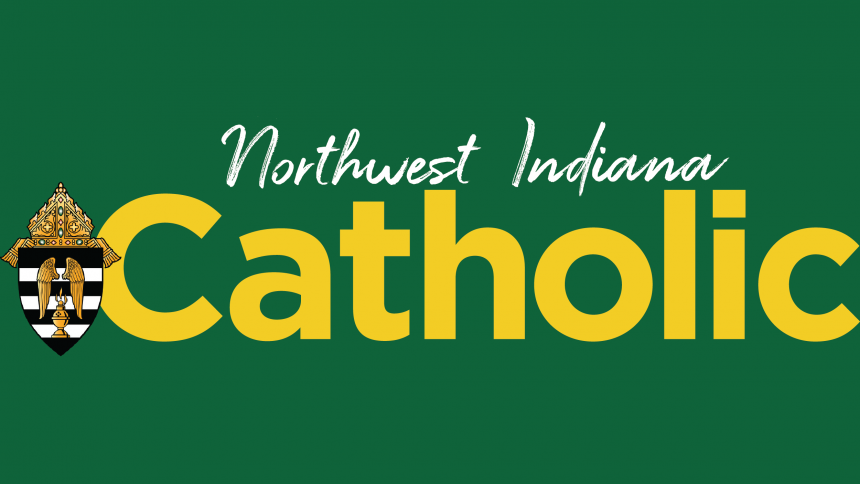
These past six months have been a delight for me as I have traveled around our diocese, coming to know and love our people, leaders, parishes, schools, hospitals and service organizations. As small as it is, the Diocese of Gary is a microcosm of the United States - we have urban, suburban and rural areas. Large numbers of Hispanics, African-Americans and Asians live here along with those descended from European immigrants. A broad diversity of cultures, economic status and life experiences makes our diocese a beautiful and interesting tapestry of humanity. Think of how different Knox and East Chicago are, in relation to each other or St. John and Miller. You can reach any place in the diocese within an hour and yet all of these wonderful communities are remarkably divergent in this region that we call home.
This past Ash Wednesday, the Catholic bishops of Indiana released a pastoral letter entitled “Poverty at the Crossroads,” an analysis and commentary on the current reality of poverty here in our beloved state. I can take no credit for any part of this letter, as it was formulated before my arrival in Gary, but I proudly signed my name to it as your leader and representative. I will dedicate several of these columns to the letter’s content and import, but seek to begin with some general introductory comments, especially concerning the document’s disturbing statistics which should challenge and inspire all of us to take greater concerted action with our impoverished brothers and sisters.
Behind the following numbers, percentages and facts stand millions of people - children, seniors, single mothers, families, unemployed men, homeless persons, the working poor - brothers and sisters all, who struggle on a daily basis just to eat, keep a roof over their heads, educate their children and get decent health care. They pour all their energy and time into just making it and getting by.
We would all agree that we can do much better together. Consider the following statistics for the state of Indiana: 1,015,127 people live in poverty, including 22% of all children. 2,275,546 people are in the low-income bracket and 69% of all jobs pay less than $20 per hour. One in six Hoosiers struggle with hunger and 40% of public school children receive free lunches. Six thousand persons are homeless, 43% of children are born to unwed parents, 47% of adults have no post-secondary education and 11% of high school students attempted suicide last year.
If we do not personally fall into these categories, if we have a good job, a comfortable house, food on the table and health insurance, it may be easy to overlook or not even see the poor in our midst. Poverty is often invisible and I may choose to keep it as such; it is so much easier that way. But Mother Teresa’s challenging words ring in my ears: “Calcutta is everywhere if you have the eyes to see.” The bishops have written this letter to help all of us to see, to step beyond the comfort of our life, to get involved in some concrete way to assist others out of poverty, to recognize the face of Christ in the ones who hunger, thirst, suffer and cry for justice and mercy.
In many ways, it may be much easier to go on a mission trip to Appalachia, help the poor in Haiti or feed the hungry in Africa than it is to consider the state of poverty in Starke County, the suffering city of Gary or the neighbor down the street who can’t afford to pay her bills. The distant poor may seem less threatening, needy or immediate than those who live right here in our diocese. The distressing statistics cited in the bishops’ letter may lead us to despair, make us angry or fill us with a resigned complacency. I choose to hope, to believe that all Catholics, Christians, believers and people of good want to help others, are loving and generous and will redouble their current efforts to make our local communities, nation and world more just, peaceful, loving, prosperous and humane.
The pastoral letter reflects on four vital aspects of our human community: family life, employment, education and health care, analyzing how poverty limits many people’s access to these fundamental rights and proposing some general ways that we can move forward together. If you have not already done so, I encourage you to read the letter, pray over it, join a deanery discussion about it (details of these meetings this fall will be forthcoming) and consider what you can do further to help transform the lives of the poor right here at home.
I have been so inspired by the work of Catholic Charities, our religious orders, priests, deacons and thousands of laity who daily feed, house, educate, heal and bless those who suffer the ravages of poverty. We seek the wisdom of the Lord to know how to further join justice with mercy, attending both the immediate needs of others as well as seeking longer-term solutions to the complex problems that still afflict us. This great effort is a constitutive element of living the Gospel and incarnating our Catholic faith.
+ Donald J. Hying
Poverty at the Crossroads: The Church’s Response to Poverty in Indiana can be viewed in its entirety at the diocesan website, dcgary.org.
